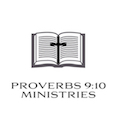Deciding to read The Bible can seem like a daunting task. Whether you are a new Christian or have been one for a very long time, cracking open the Bible and trying to study it can seem overwhelming. I’ll admit, the first time I committed to reading through the whole Bible in a year, I wondered if I would ever get through it. Thankfully, from the very first time, there was one thing that helped me immensely… I used a chronological reading plan. At the time, I had no idea just how important that would be for learning and understanding the Bible. But the truth is, it made it much easier to read, as well as more interesting!
Most of us who have grown up going to Sunday school have been taught individual Bible stories, in somewhat random order. We’d hear a story about Moses, then a story about Jesus then a story about Abraham then a story about Sampson, and on and on. I’m not trying to bash children’s Sunday school, and we do need to stay age-appropriate; I’m just saying it’s important that we teach the stories according to their timeline, or at least make sure that eventually there’s an understanding of their place in history, and what was actually happening in the Bible as a solid foundation.
Think about it…if you were going to learn the history of the United States, or you were going to teach someone else the history of the United States, it wouldn’t be nearly as effective to be given an overview of the last election, then the story of Washington crossing the Delaware, then a synopsis of the battle of Gettysburg, and finally a basic account of the pilgrims’ voyage and the landing at Plymouth Rock.
Try teaching someone with no understanding of US history each of those individual stories, in some random order, trying to pull one crucial element of the story out for them to grasp a hold of, and I can guarantee they would not pass even the simplest of US history tests! And this is where most people who consider themselves evangelical Christians find themselves in respect to knowing the Bible!
Whether you’re a new Christian, or have been one for a long time, you can’t get to know God, or His plan of redemptive history, unless you learn the Bible. The Bible is God’s Word to us! He told us what He wants us to know about Him, ourselves, and the world. Therefore, to say you have a relationship with God, but then refusing to learn what He has to say, is like having a relationship with someone who you go on a first date with, get warm, fuzzy feelings for, but then asking them not to talk on every date after that, for fear they will ruin your first impression of them! To stay this way, is to base your relationship on your emotions and feelings, both of which are fragile. This will only stunt your relationship and keep you on a roller coaster ride of ups and downs!
But, like I said earlier, committing to reading and learning the Bible seems like a daunting task. So, how can you overcome your fear of reading the Bible? Here are some suggestions:
- Buy yourself a chronological Bible. Better yet, ask for one for Christmas! Many have an actual daily reading plan that’s built right in, that will get you through the whole Bible in one year. I’ve used this for the last two years for daily reading, and love it!
- If you don’t want to buy a chronological Bible, look online or on your Bible app for a one-year, chronological reading plan to follow.
- For your in-depth studies, actually study the Bible! Pick out Bible studies that teach a book of the Bible verse by verse, so that you gain an understanding of that particular part of the Bible! In addition…
- Do Bible studies that teach theology and doctrine of a specific subject. These are not words for theologians only. This type of study will help you understand the Bible.
- Familiarize yourself with the Bible’s different genres. You will find books that are mostly narrative, as well as ones that are poetry, wisdom, prophesy, personal letters, etc. Knowing the types of books in the Bible (and how they are grouped together in most Bibles), will help give you a better understanding of what they are and what their purpose is.
- Learn a little bit about the history of the time period of what you are studying. Knowing what the conditions were like and what was going on in the world at that time will give you a better understanding and some insight.
I hope these ideas give you the courage to open your Bible and read and study it! The Bible is the most interesting book I’ve ever read (and I’ve read a lot of books!). I know it’s only September, but January is coming, and it’s a great time to commit to read through the Bible in a year. I’m not saying you shouldn’t start reading now; you definitely should! Keep in mind, the Bible was written for everybody to read; not just pastors and theologians. You can do this! As the song from “The Sound of Music” says…”Let’s start at the very beginning…”, so open to Genesis…and get reading!

